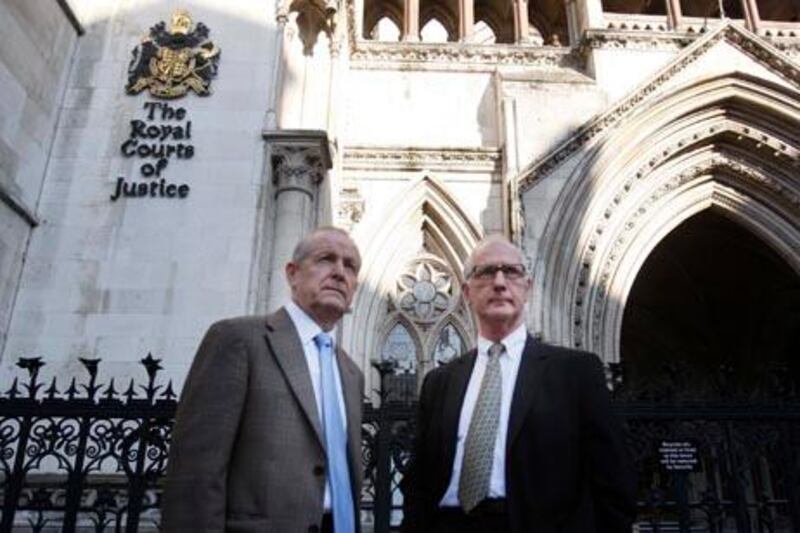LONDON // Witnesses saw suicide bombers who attacked London's transport system on July 7, 2005 smiling and laughing as they travelled to the city to commit mass murder, a lawyer told a long-awaited investigation today.
Hugo Keith told a coroner's inquest into the deaths of 52 commuters that travellers described the four men as "smiling and laughing and generally relaxed," as they took a train with knapsacks packed with explosives.
The inquest at London's Royal Courts of Justice opened today with a minute's silence in memory of the victims of one of Britain's deadliest terrorist attacks. Mr Keith, the chief counsel to the inquest, read out the names of all those who died when the four British Muslim bombers detonated devices aboard three subway trains and a double-decker bus. He said the bombs struck down British nationals as well as foreigners "with no regard to whether the victim was Christian, Muslim, a follower of any of our other great faiths, an adherent to none."
"They were acts of merciless savagery which could only outline the sheer inhumanity of the perpetrators," Mr Keith added. The date of the attacks - "7/7" - has been seared into Britons' memories. But Mr Keith said the bombings may have been planned for the day before. He said a mobile phone recovered from one bomb site showed that ringleader Mohammed Siddique Khan sent a text message to another attacker at 4.35am on July 6, saying "Having major problem. Cannot make time. Will ring you when I get it sorted. Wait at home."
Mr Keith said Khan visited a hospital with his wife on July 5 because of complications with her pregnancy. She had a miscarriage on the day of the attacks. It was one of a string of startling new details revealed in his opening statement. He said a piece of paper recovered from the pocket of bomber Jermaine Linsday mentioned journey times to Paddington, Westminster and Bond Street stations - some of the best known stops on the Underground system.
Paddington is a major railway station, Bond Street the city's ritziest shopping district and Westminster the stop for the Houses of Parliament. It was not immediately clear whether mention of those stops meant they were targets of the attackers. Three of the bombs exploded elsewhere on the underground system. The closure of one line meant the fourth bomber carried his device onto a bus, where it killed 13 people.
Mr Keith said the bombers apparently prepared to fight police if intercepted, carrying improvised bombs, which could be thrown, and a semiautomatic handgun. He also said a man resembling Lindsay approached an employee at King's Cross station and said he wanted to speak to the duty manager about something "very important". He disappeared before anyone could talk to him. The hearings are expected to last five months and will look at whether the emergency services' response was adequate and whether the intelligence services and police could have prevented the attacks.
The inquest was delayed pending the prosecution of three people accused of helping the attackers choose their targets. They were found innocent of the charge last year, clearing the way for these proceedings to begin. British inquests are fact-finding inquiries that take place when a person dies violently or under unusual circumstances. They can't establish civil or criminal liability, but in this case the investigation will give families of victims the chance to ask officials if more could have been done to prevent the attacks.






